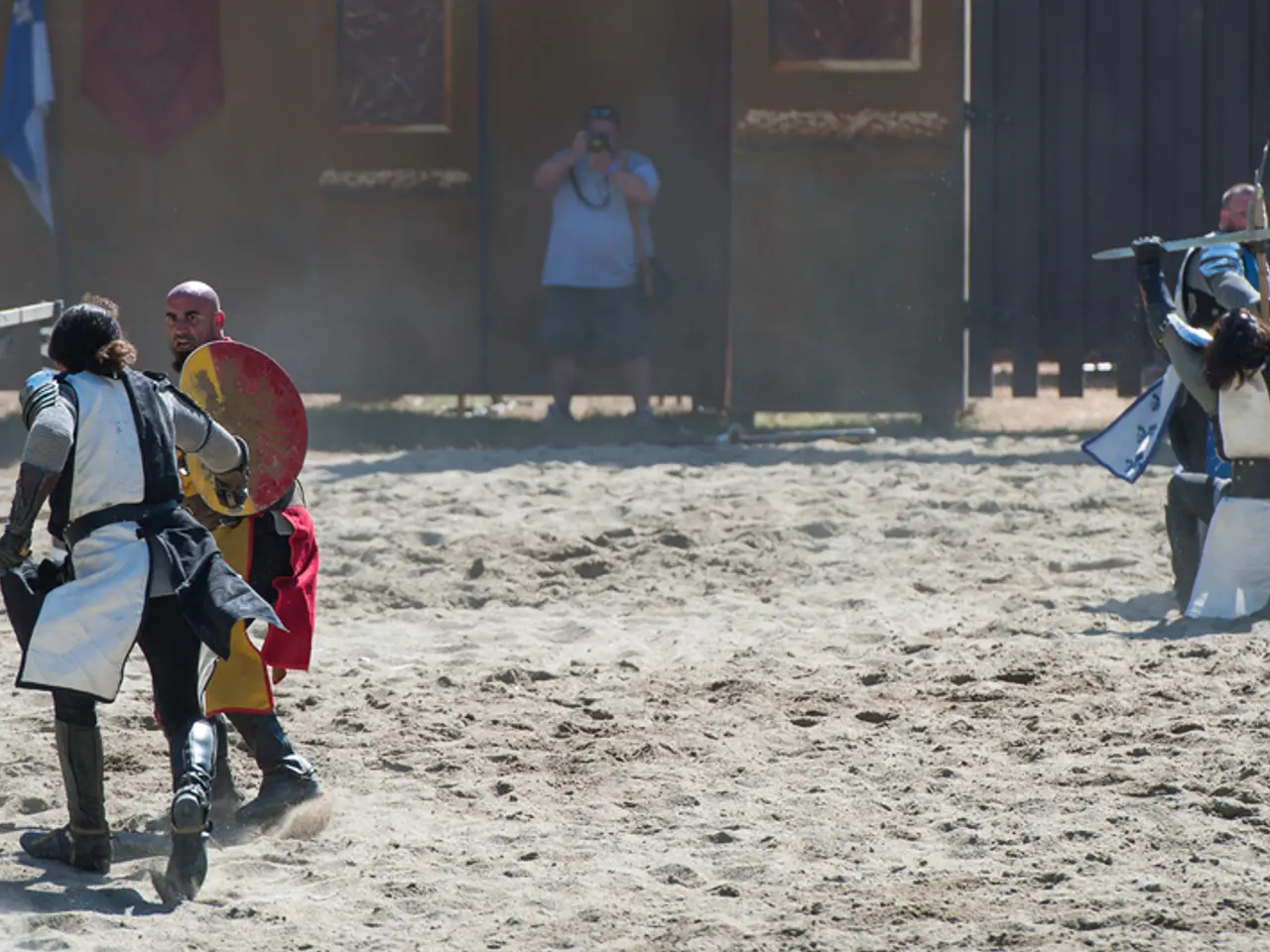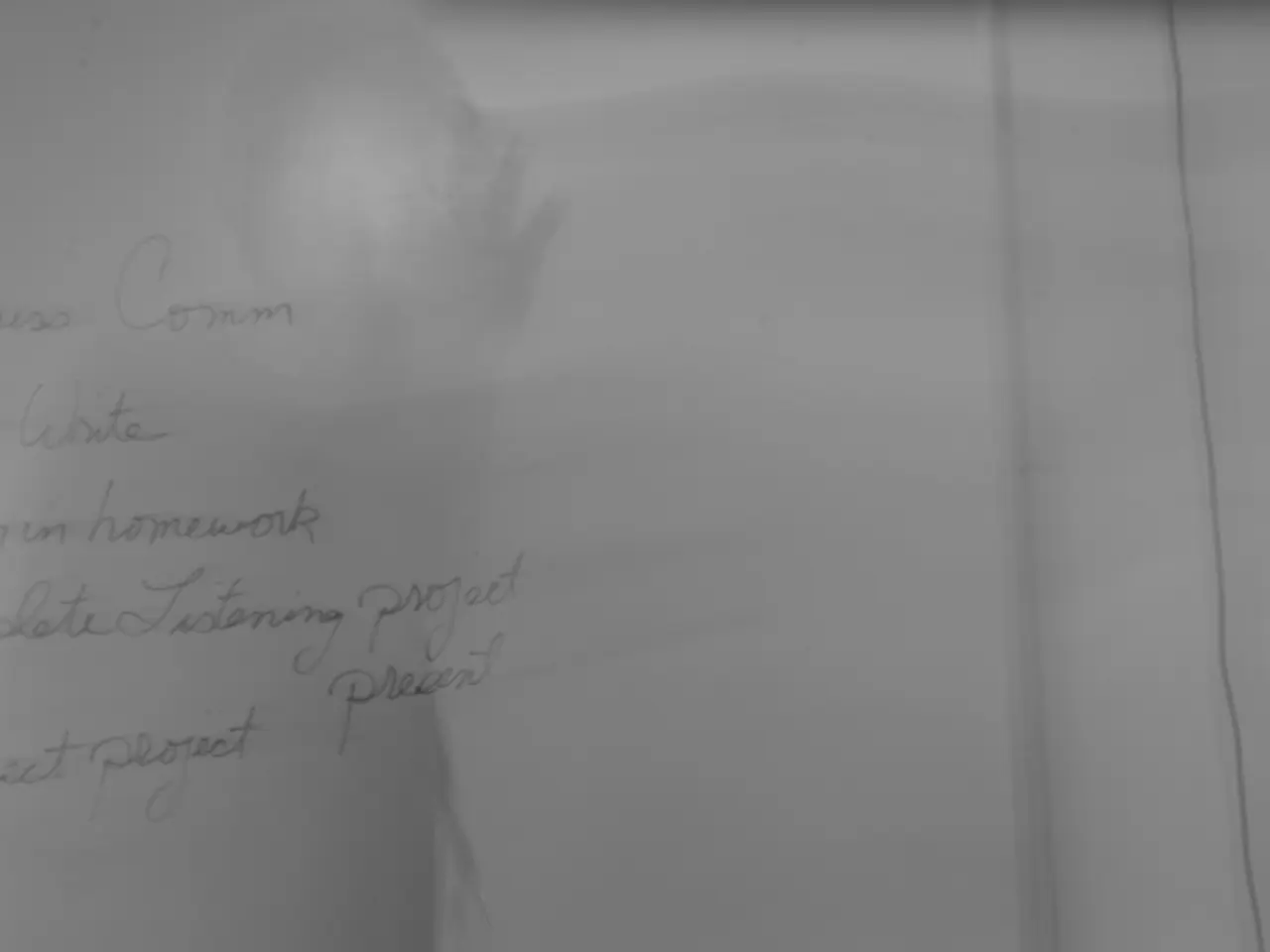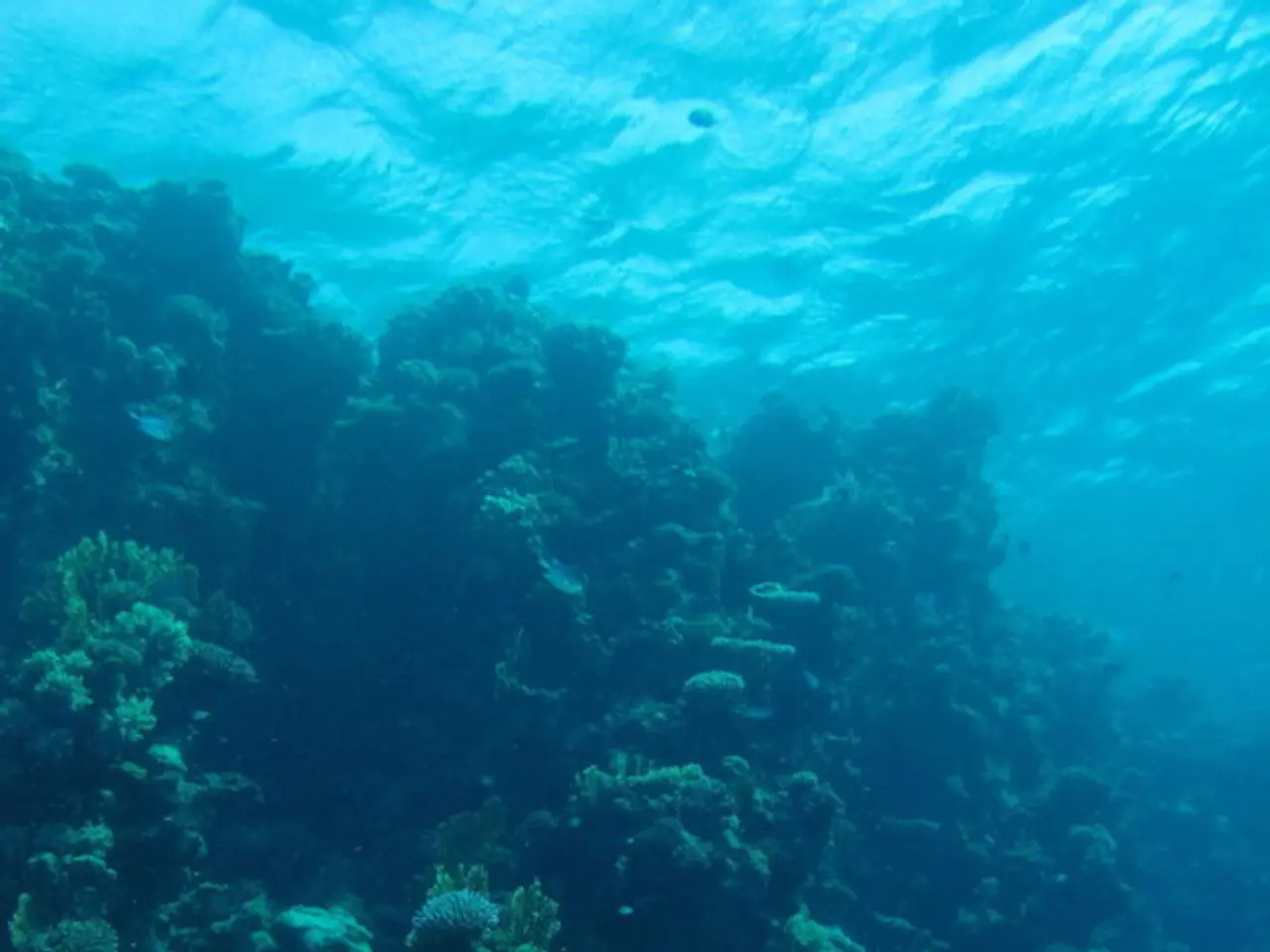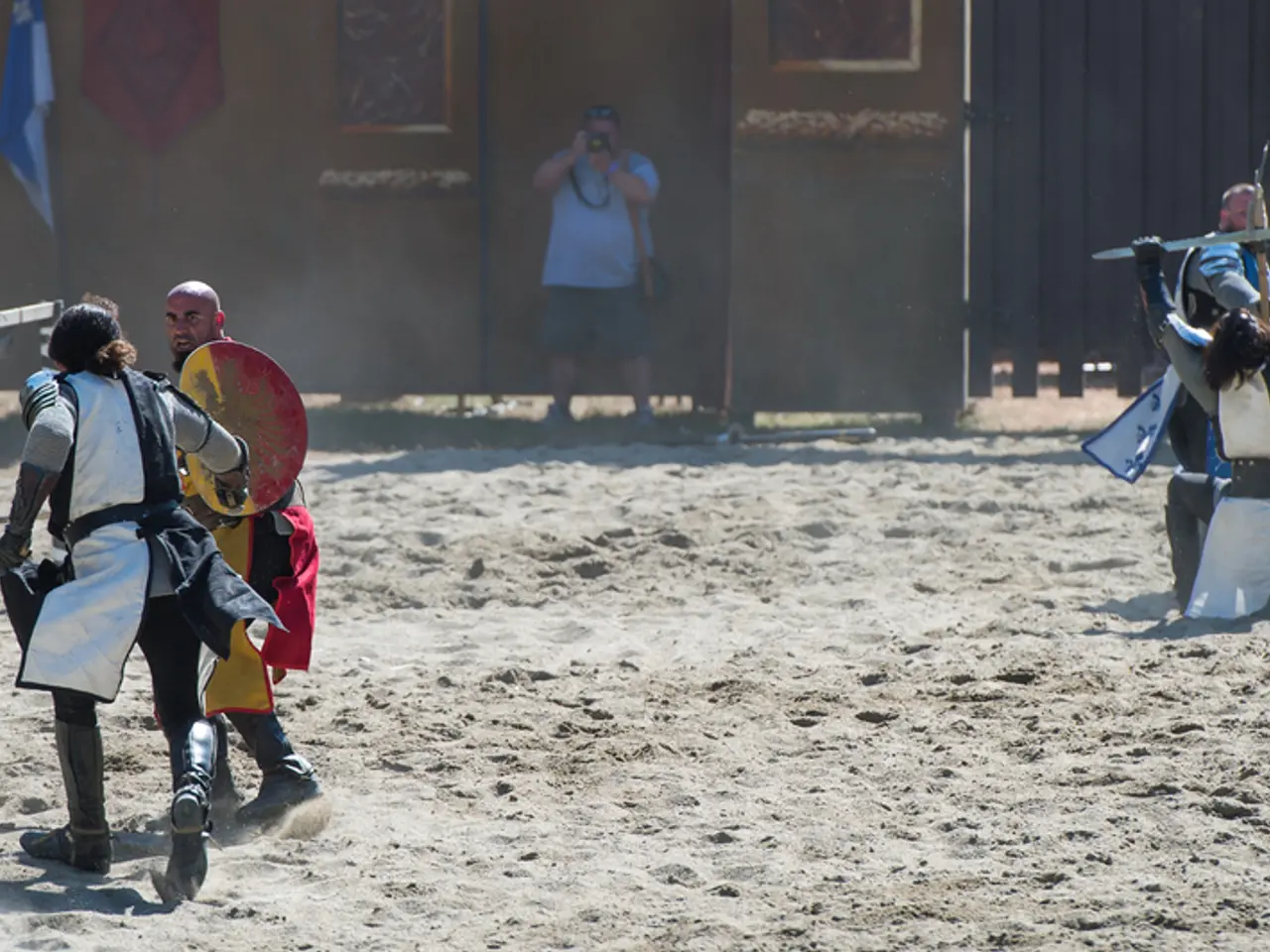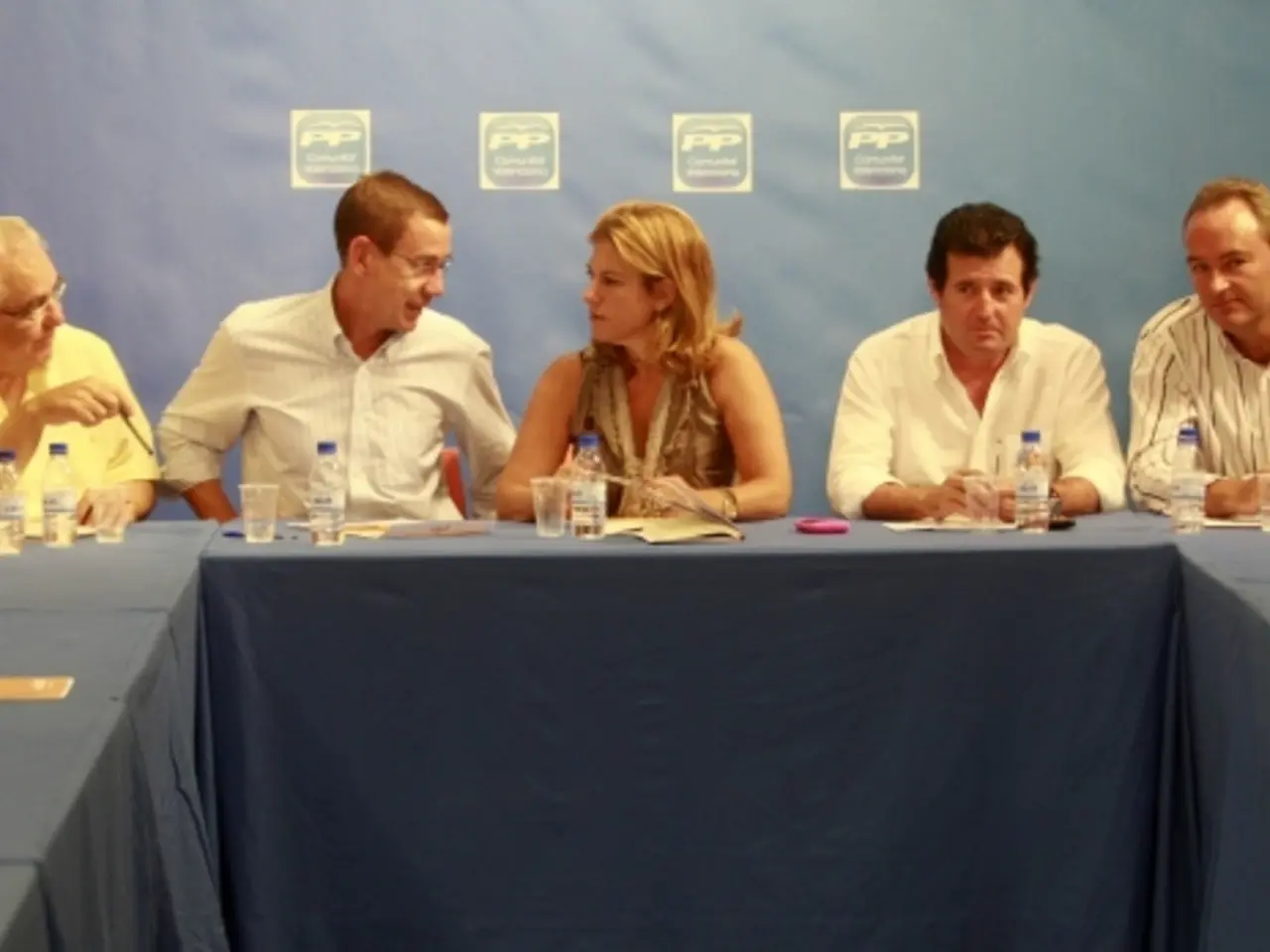Intensive air assaults hit southern Lebanon by Israeli forces
Israeli air raids on Lebanese territory have intensified, with hundreds of violations reported, despite a ceasefire agreement reached in November 2024. These strikes, under the pretext of "security operations," have resulted in the deaths of dozens of Lebanese civilians.
In a recent development, the Israeli Defense Minister allegedly stated that the IDF attacked Hezbollah's largest precision missile production site. This limited conflict continues, with Israeli forces conducting multiple strikes in late July and early August 2025, resulting in the deaths of at least five Hezbollah members.
However, the situation is complex, with diverging views on disarmament. Hezbollah's Secretary-General, Naim Qassem, publicly rejected Israeli and U.S. demands to disarm the group, declaring Hezbollah's weapons a source of national strength and a strictly internal Lebanese matter. Hezbollah stands firm in its defiance and vows to resist disarmament at all costs.
On the other hand, Israel insists on the complete disarmament of Hezbollah as a precondition for Israel’s withdrawal from currently held positions in southern Lebanon. The Lebanese government has also moved towards pressuring Hezbollah to disarm, motivated by reducing Iranian influence in Lebanon and fulfilling conditions from the U.S. and international community to unlock economic aid.
The Lebanese Prime Minister announced that the cabinet would reconvene to discuss expanding state sovereignty across all Lebanese territory, echoing earlier debates and signaling growing internal pressure to resolve the question of Hezbollah's weapons. This discussion echoes earlier debates held in April and signals growing internal pressure to resolve the question of Hezbollah's weapons.
The Israeli Defense Force launched a series of heavy airstrikes on southern and eastern Lebanon on July 24, 2025, targeting areas near Brital Jurud and the outskirts of the town of Masa in the Bekaa Valley. This threat is seen by many in Beirut as collective punishment and foreign interference.
The intensifying international pressure, along with the Israeli strikes, signals a dangerous new chapter in Lebanon's already fragile security landscape. It remains to be seen how this conflict will unfold in the coming months, with a fragile ceasefire underlying ongoing tensions.
- The escalating air raids by the Israeli Defense Force in Lebanon, amidst the backdrop of a complex political landscape, have prompted discussions about Hezbollah's disarmament in general-news reports.
- In addition to the ongoing war-and-conflicts between Israel and Hezbollah, the entertainment sector has also weighed in on the issue, with several television shows and films exploring the broader themes of political tensions in the Middle East.
- While politics dominates headlines regarding the ongoing conflict in Lebanon, science and business have not been entirely sidelined. The United Nations, for example, has been actively engaged in efforts to improve Lebanon's economy and infrastructure, particularly in crisis-affected areas.
- In the realm of history, analysts have drawn parallels between the current situation in Lebanon and previous episodes of war-and-conflicts, highlighting the importance of diplomatic negotiations and de-escalation measures to prevent further loss of life and regional instability.
